
For our 2024 rankings, the research team at Nursing Schools Almanac collected data on nearly 3,000 nursing schools and campuses throughout the United States. We evaluated each school on three dimensions:
- The institution’s academic prestige and perceived value
- The breadth and depth of nursing programs offered
- Student success, particularly on the NCLEX licensure examination
We then combined these assessments into an overall score and ranked the schools accordingly. For a detailed description of our assessment methodology and dimension weights, please see here.
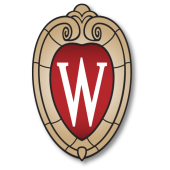
#1: University of Wisconsin - Madison
Established in 1924, the UW Madison School of Nursing enrolls more than 1,000 students across its undergraduate and graduate nursing programs. The school graduates approximately 150 prelicensure BSN students annually, who have averaged a stellar NCLEX pass rate of 98% over the past three years. Graduate students can pursue either type of doctoral degree (DNP, PhD) as well as four certificate programs (clinical nurse specialist, nurse educator, psychiatric mental health, school nursing). The school’s new Signe Skott Cooper Hall has state-of-the-art simulation labs and research facilities. Adjacent is the Health Sciences Learning Center that brings students together across the disciplines of nursing, medicine, and pharmacy. Nursing students also have access to leading facilities in Madison for their clinical practice and research.
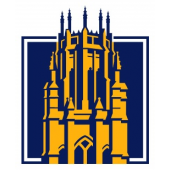
#2: Marquette University
Founded in 1936, the College of Nursing at Marquette University has more than 7,000 alumni and educates approximately 350 nursing students annually. The college offers BSN, MSN, post-master’s certificate, DNP, and PhD nursing programs, with a low 8:1 student-to-faculty ratio across all clinical settings. Graduates of the school’s flagship BSN program have passed the NCLEX exam at an 89% first-time rate over the past decade, including a near-perfect 99.7% first-time pass rate in 2020. The College of Nursing is housed in 46,000-square-foot Emory T. Clark Hall, where students benefit from new facilities like the Wheaton Franciscan Healthcare Center for Clinical Simulation.
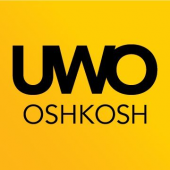
#3: University of Wisconsin - Oshkosh
Graduating its first class of 22 in 1970, the UW Oshkosh College of Nursing has since graduated approximately 6,000 nurses. It offers students a range of undergraduate and graduate programs, including an innovative, predominantly online accelerated bachelor of science in nursing. Each year, approximately 200 prelicensure BSN students pass the NCLEX exam at a consistently high rate of 92-99%. UW Oshkosh’s clinical nurse leader graduate program has also maintained a stellar 100% pass rate on the Commission on Nurse Certification CNL certification exam since 2009. The school provides students evidence-based hands-on clinical training, with opportunities for international study in South America and India.
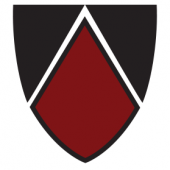
#4: Edgewood College
Edgewood College has awarded nursing degrees since 1983. The Henry Predolin School of Nursing recently launched a DNP program and now offers the full gamut of baccalaureate, master’s, and doctoral nursing degrees. The traditional BSN program graduates about 100 students each year. These individuals have passed the NCLEX exam at a 92% first-time rate over the past decade, including a stellar 99% first-time pass rate in 2019. Nursing students take advantage of the college’s clinical partnerships with over 70 facilities in southcentral Wisconsin, including University of Wisconsin Hospital and Clinics, American Family Children’s Hospital, and UnityPoint Health - Meriter Hospital.
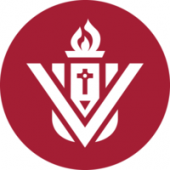
#5: Viterbo University
Viterbo University’s School of Nursing is a fully accredited institution that offers both undergraduate and graduate degrees. Over 600 nursing students are currently enrolled across the school’s four nursing programs: traditional BSN, RN-to-BSN, BSN-to-DNP, and MSN-to-DNP. The traditional BSN program graduates 100-130 new nurses annually, and these students have passed the NCLEX exam at a strong 92% first-try rate over the past decade. Nursing students have access to 35 fulltime and part-time faculty, a well-equipped clinical simulation learning center, and global education opportunities in Belize, Guatemala, Japan, and Korea.
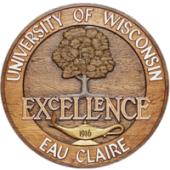
#6: University of Wisconsin - Eau Claire
UW Eau Claire graduated its first nursing class in 1968. Today, the College of Nursing and Health Sciences offers a range of nursing degrees including traditional BSN, BSN completion, MSN, and DNP programs. In total, the college educates 800 undergraduate and graduate students and offers 300+ clinical affiliations. Approximately 100-130 students complete the traditional BSN program annually, with a stellar 93% first-time NCLEX pass rate over the past decade. Nearly 100% of students are either employed or enrolled in further nursing education within six months of graduation.
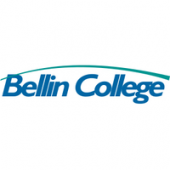
#7: Bellin College
Bellin College specializes in nursing and medical imaging education. Undergraduates can pursue several BSN pathways including traditional prelicensure, sophomore and junior transfer, an accelerated 15-month option, and RN-to-BSN completion. The college graduates approximately 100 prelicensure BSN students each year. Over the past decade, these students have averaged an impressive 94% first-time pass rate on the NCLEX licensure examination. At the graduate level, Bellin College offers an MSN degree with family nurse practitioner and nurse educator specialties. The nurse educator curriculum is available online. Bellin’s nursing programs are noted for their extensive clinical experiences and numerous service learning opportunities.
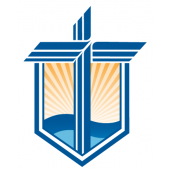
#8: Concordia University Wisconsin
The School of Nursing at Concordia University Wisconsin offers traditional BSN, accelerated BSN, and RN-to-BSN programs at the undergraduate level, with a strong foundation in the liberal arts. The prelicensure BSN tracks graduate 40-50 students annually, with an impressive 92% first-time NCLEX pass rate over the past decade. CUW undergraduates benefit from global study trips and clinical experiences that start during their sophomore year. The university’s MSN program has specialty tracks in four areas: adult-gerontology primary care nurse practitioner, family nurse practitioner, healthcare informatics, and nurse educator. The school also offers an accelerated RN-to-BSN-to-MSN bridge program, several graduate certificates, a DNP degree with post-baccalaureate and post-master’s pathways, and a unique parish nursing certificate.
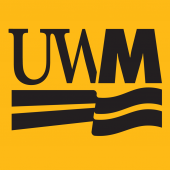
#9: University of Wisconsin - Milwaukee
Operational since 1965, the UW Milwaukee College of Nursing conducts the largest nursing program in the state. The college boasts over 7,000 alumni and currently enrolls 1,200 undergraduates and 300 graduate students. UW Milwaukee offers excellent nursing facilities, 95 dedicated faculty, and 200+ clinical affiliations. Each year, approximately 200-225 students complete the traditional BSN program. These students pass the NCLEX licensure exam at a solid rate; for example, 91% of students passed in 2020. UW Milwaukee was the first university to offer an asynchronous online nursing PhD in 2003. Today, most campus-based undergraduate and graduate courses are available online as well.
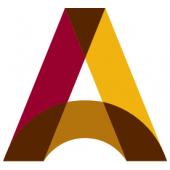
#10: Alverno College
Alverno College’s JoAnn McGrath School of Nursing and Health Professions has trained skilled caregivers since 1932. The school offers a plethora of nursing pathways and specializations. Undergraduates can pursue a traditional BSN degree, an accelerated 2+2 program, or an RN-to-BSN completion option. The two prelicensure programs collectively graduate 150-200 students annually, with a solid 89% first-time NCLEX pass rate over the past decade. Students benefit from guaranteed clinical placements, as well as extensive technical practice in the college’s clinical learning and simulation centers. Graduate nursing students can pursue five advanced practice specializations through either an MSN degree or a post-master’s certificate. In 2017, Alverno College unveiled its first doctoral program: a post-master’s DNP conducted in a flexible hybrid format with leadership and direct care tracks. In January 2020, the college launched a direct-entry MSN program that enables students with a non-nursing bachelor’s degree to enter the nursing profession after 18 months of intensive, fulltime study.
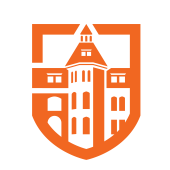
#11: Carroll University
The College of Health Sciences at Carroll University offers a traditional prelicensure bachelor of science in nursing. Students develop entry-level nursing skills through a combination of coursework, laboratory simulations, and clinical experiences. Nursing courses and laboratory simulations begin during freshman year. As students move through the program, they have the opportunity to focus their training on specific domains like medical-surgical nursing, pediatric nursing, palliative care, psychiatric nursing, or intensive care. Over the past decade, Carroll’s BSN graduates have achieved a phenomenal 98% first-time pass rate on the NCLEX-RN licensure exam.
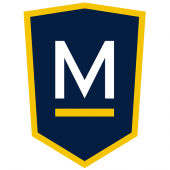
#12: Maranatha Baptist University
Maranatha Baptist University is the only regionally accredited university of the Independent Fundamental Baptist faith to offer a BSN degree. The school has access to grants from the Health Resources and Services Administration for facilities improvements, scholarships, loans, and student loan repayment programs. Maranatha has a small and tight-knit class of nursing students, with fewer than 20 BSN candidates typically graduating each spring. Over the past decade, these graduates have passed the NCLEX exam on their first attempt at a stellar 97% rate. Undergraduates have multiple opportunities to apply their nursing skills on international mission trips.

#13: University of Wisconsin - Green Bay
The University of Wisconsin - Green Bay offers several nursing pathways through the College of Health, Education, and Social Welfare. Existing registered nurses can pursue a bachelor of science in nursing through the school’s RN-to-BSN completion program. This option is offered not only on campus, but also online through the University of Wisconsin System’s BSN@Home collaborative. Prelicensure students can enroll in the Nurse 1-2-1 program. This innovative partnership with Northeast Wisconsin Technical College enables high school graduates to earn an ADN from NWTC and a BSN from UW-Green Bay, all while living on campus and enjoying a traditional undergraduate experience. In the fall of 2020, the university also launched its own four-year prelicensure BSN program. This new offering will help the state to meet the growing demand for baccalaureate-prepared healthcare providers. Finally, graduate nursing students can pursue an online MSN degree with a leadership and management focus at UW-Green Bay. With flexible course scheduling, enrollees can complete the degree in two, three, or four years.
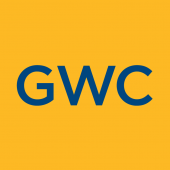
#14: George Williams College of Aurora University
The curriculum at George Williams College is focused on educating students in a handful of majors including nursing, social work, and applied psychology. In 2017, the college launched a new four-year prelicensure BSN program to help address Wisconsin’s acute nursing workforce shortage. Students learn in GWC’s state-of-the-art nursing skills and simulation laboratories, where high-fidelity medical simulation manikins respond in realtime to the care administered. Students also receive extensive clinical experience at area hospitals, clinics, and community agencies. George Williams College’s nursing graduates have a high rate of success on the licensure examination. Indeed, the first two graduating cohorts have scored a perfect 100% NCLEX-RN pass rate.
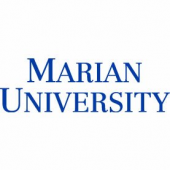
#15: Marian University
Marian University’s School of Nursing and Health Professions has been educating and training some of the area’s best nurses for more than a century. The school’s BSN program integrates Marian’s liberal arts core with an innovative curriculum centered around professional preparation. Nursing coursework covers critical topics like health promotion, psychological integrity, and the legal aspects of practice. Approximately 80-100 BSN students graduate each year, and they have posted an 85% first-time pass rate on the NCLEX licensure exam over the past decade. Marian University also offers an RN-to-MSN bridge program, two MSN specialty areas (nurse educator, family nurse practitioner), and a post-baccalaureate nurse educator certificate.
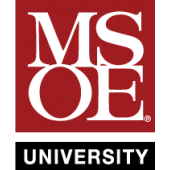
#16: Milwaukee School of Engineering
Milwaukee School of Engineering, also known as MSOE, is a private non-profit university that specializes in engineering, business, and nursing education. The School of Nursing leads two baccalaureate programs: a traditional prelicensure pathway and an accelerated second degree. Both BSN programs offer students direct admission and guaranteed placement in the clinical sequence. The university offers rolling admission for the traditional BSN program. Admission to the accelerated program happens twice annually, and each cohort is limited to just 32 students. The accelerated second degree program requires just 18 months of fulltime study. MSOE graduates 50-80 students annually across these two programs. Since 2017, these students have enjoyed a 95% first-time pass rate on the NCLEX national licensure examination. Nearly 100% of students are either employed or enrolled in further nursing education within six months of graduation.

#17: Cardinal Stritch University
Cardinal Stritch University is one of the largest Franciscan institutions of higher education in North America. The Ruth S. Coleman College of Nursing and Health Sciences offers nursing pathways at both the baccalaureate and master’s degree levels. Undergraduates have three options. Traditional college students can enter the prelicensure BSN program, which offers direct admission to freshmen. This new offering just graduated its first cohort in 2017. Registered nurses can enroll in Stritch’s RN-to-BSN pathway, which conducts coursework online to cater towards working professionals. Finally, ADN students in the Wisconsin Technical College System can take advantage of Stritch’s concurrent enrollment collaborative, which may enable them to complete their ADN with the majority of their BSN credits already earned. At the graduate level, Cardinal Stritch University offers an MSN degree with educator and leader concentrations. The MSN program also accommodates busy RN schedules by meeting face-to-face one night per week, conducting coursework online, or a blend of the two.
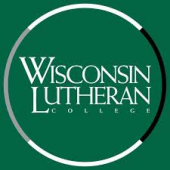
#18: Wisconsin Lutheran College
Wisconsin Lutheran College is a nationally ranked Christian college that serves approximately 1,200 traditional undergraduate, adult, and graduate students through both on-campus and online programs. The school offers a prelicensure bachelor of science degree in nursing that combines a liberal arts education with a strong science foundation. Nursing students participate in a wide variety of classroom discussions, laboratory exercises, and clinical experiences, with a particular emphasis on serving diverse and vulnerable populations. Since the program’s founding approximately a decade ago, BSN graduates have averaged a 92% first-time pass rate on the NCLEX licensure examination. Three of the past four graduating classes each reported a 100% NCLEX pass rate on the first attempt. All twenty-one of Wisconsin Lutheran College’s 2019 nursing graduates were employed within one month of graduation.
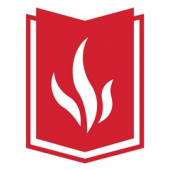
#19: Carthage College
Carthage College has been a leading producer of Fulbright scholars for several years. Six recent graduates won Fulbright awards for 2018-19, the highest of all baccalaureate institutions in Wisconsin. The college launched its undergraduate nursing program in 2015 and recently graduated the first cohort of thirteen seniors. Grounded in the liberal arts, humanities, and sciences, the BSN program introduces students to patient care situations within the first few weeks of the program. Students begin clinical work during sophomore year. Carthage College has partnerships with many local clinical sites including Ascension Health System, Kenosha Brookside Care Center, and Milwaukee VA Medical Center. Nursing graduates will have nearly 1,200 hours of clinical experience on their resumes. The Carthage nursing program has grown quickly, with approximately 200 students now enrolled across the four-year curriculum.
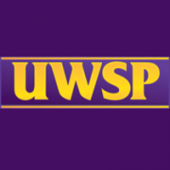
#20: University of Wisconsin - Stevens Point
UW-Stevens Point offers undergraduate programs in 48 majors and 78 minors. The university’s nursing curriculum is led by the School of Health Care Professions, which is itself part of the College of Professional Studies. ADN- or diploma-prepared nurses can enroll in an RN-to-BSN degree completion program. In addition, the school offers a 1+2+1 nursing partnership program in conjunction with Mid-State Technical College, Northcentral Technical College, and Nicolet College. This innovative curriculum enables students to earn both an associate degree from their local technical college and a BSN degree from UW-Stevens Point.
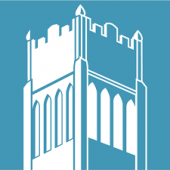
#21: Mount Mary University
Mount Mary University was Wisconsin’s first four-year, degree-granting Catholic college for women. Today the university serves women in its traditional undergraduate programs and both women and men in its graduate and adult programs. Mount Mary recently launched a four-year, 120-credit prelicensure BSN program that features small class sizes and direct admission for incoming freshmen. Coursework is conducted in the university’s 6,500-square-foot Health Sciences Center, Nursing Skills Lab, and Interprofessional Simulation Lab, with clinical rotations at top healthcare facilities across Southeastern Wisconsin. Mount Mary also offers a unique program called the Nursing 1-2-1 Partnership in conjunction with Milwaukee Area Technical College and Waukesha County Technical College. This innovative curriculum enables prelicensure students to complete an associate degree at their local technical college, earn licensure as a registered nurse, and complete a BSN degree at Mount Mary University – all in just four years. Finally, the university offers an online RN-to-BSN completion program conducted in accelerated eight-week class sessions. Students can complete the curriculum in as little as two years, or in even less time with summer classes. The RN-to-BSN program is open to both women and men.
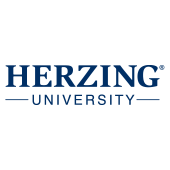
#22: Herzing University
Founded by Henry and Suzanne Herzing in 1965, Herzing University was the first post-secondary institution focused on preparing students for careers in the computer industry. The university now conducts more than thirty programs in technology, business, healthcare, and public safety. Herzing operates three Wisconsin campuses located in Kenosha, Madison, and Milwaukee (Brookfield). The Kenosha and Milwaukee campuses offer a practical nursing diploma, and all campuses offer a prelicensure BSN program with three distinct pathways (generic, LPN/paramedic advanced standing, accelerated second degree). Practical nursing students have averaged a 91% first-time pass rate on the NCLEX-PN licensure exam over the past decade. BSN graduates have scored an 82% first-time pass rate on the NCLEX-RN licensure exam since the program’s launch in Wisconsin.

#23: Southwest Wisconsin Technical College
Southwest Wisconsin Technical College provides apprenticeship, certificate, technical diploma, and associate degree programs across a range of vocational fields. The college offers a brief one-course nursing assistant technical diploma and a prelicensure associate degree in nursing. The ADN program has both a traditional four-semester pathway and an LPN-to-RN bridge option for licensed practical nurses who are district residents. Across these two pathways, Southwest Tech typically graduates 40-60 ADN students annually. These students have averaged a 92% first-time pass rate on the NCLEX-RN licensure examination over the past decade. Graduates are prepared to seek entry-level nursing positions in hospitals, extended care facilities, nursing homes, home healthcare agencies, physicians’ offices, and wellness centers.

#24: Moraine Park Technical College
Moraine Park Technical College offers nursing education at its Beaver Dam, Fond du Lac, and West Bend campuses. The school’s rigorous associate of applied science (AAS) degree program accommodates fulltime enrollment only. After completing the first two semesters, students may sit for the NCLEX-PN licensure exam. This provides a practical nursing exit point for aspiring LPNs who seek immediate employment. Those who remain and complete the program’s final two semesters may take the NCLEX-RN exam for licensure as a registered nurse. MPTC’s graduates have a stellar track record on both tests: over the past decade, they have passed the NCLEX-RN exam at a 95% first-try rate and the NCLEX-PN exam at a phenomenal 99% first-try rate.
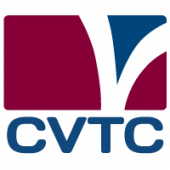
#25: Chippewa Valley Technical College
Like many of Wisconsin’s public technical colleges, Chippewa Valley Technical College offers a two-year career ladder program in nursing. CVTC enrolls new nursing cohorts at its Eau Claire and River Falls campuses each August and January. At the conclusion of the first academic year, a student may sit for the NCLEX-PN licensure exam. With a passing score, he/she has an exit option to practice as an LPN. Most students matriculate immediately to the second year of study, which prepares them to pass the NCLEX-RN licensure exam and practice as registered nurses. The school has a track record of strong performance on both tests, with an 89% NCLEX-RN pass rate and a 97% NCLEX-PN pass rate over the past decade. Recent classes have also achieved a 75-80% graduation rate and a phenomenal 99% job placement rate in the industry.
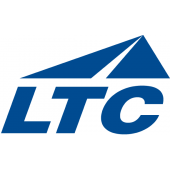
#26: Lakeshore Technical College
Lakeshore Technical College offers three distinct pathways into the nursing profession. Aspiring RNs can pursue an associate degree on either a fulltime (two-year) or part-time (three-year) schedule. Theory and lab courses are supplemented by real-life patient care experiences throughout Sheboygan and Manitowoc Counties. This rigorous 70-credit program educates approximately fifty new students each year, who have scored a strong 90% first-time NCLEX-RN pass rate over the past decade. LTC also offers a part-time technical diploma program for aspiring practical nurses, which requires approximately two years of evening study. LTC students have posted a stellar 98% first-time NCLEX-PN pass rate over the past decade. Finally, the college offers a brief one-course program for aspiring nursing assistants. Scheduling is flexible, with evening classes and two start dates annually.
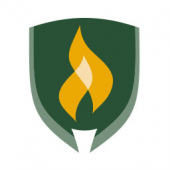
#27: Rasmussen University
Rasmussen University opened in 1900 as the Rasmussen Practical School of Business in Stillwater, Minnesota. Today the university serves more than 15,000 students across six states and an online division, with degree and certificate programs in business, design, education, health sciences, justice studies, nursing, and technology. Rasmussen operates campuses in the Wisconsin cities of Green Bay and Wausau. Both campuses offer two options for aspiring nurses: an associate degree in nursing and a bachelor of science in nursing. The ADN program has a traditional prelicensure pathway as well as an LPN-to-RN bridge option. The BSN program offers two accelerated entrance options, one for traditional applicants and one for students who already hold a non-nursing bachelor’s degree. Graduates from the Green Bay campus have averaged an 88% NCLEX pass rate over the past three years, while their counterparts in Wausau have achieved a 93% NCLEX pass rate during that timeframe.
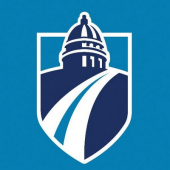
#28: Madison Area Technical College
Madison College is the #1 source of transfer students to the University of Wisconsin - Madison. The college offers more than 180 programs across eleven areas of study, with a diverse range of short-term certificates, technical diplomas, and two-year associate degrees. Madison College provides five programs for aspiring nurses: a nursing assistant technical diploma, a practical nursing technical diploma, and three pathways to an associate degree (generic, LPN completion, paramedic completion). Student outcomes across all programs are excellent. Over the past decade, ADN graduates have scored a 90% first-time pass rate on the NCLEX-RN licensure exam, while LPN graduates have scored a phenomenal 97% first-time pass rate on the NCLEX-PN licensure exam. The ADN program also boasts a 98% employment rate for recent graduates and a 99% student satisfaction rate.
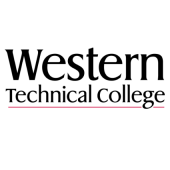
#29: Western Technical College
Western Technical College is a two-year vocational school and a member of the Wisconsin Technical College System. The college serves eleven counties and enrolls over 5,000 students. Western offers an associate of applied science (AAS) degree for aspiring nurses. The four-term curriculum prepares students to take the NCLEX-RN exam for registered nursing licensure. After successfully completing the first two terms, students are eligible to receive a diploma and take the NCLEX-PN exam for practical nursing licensure. The program graduates 90-100 students annually, with excellent outcomes on both exams. Over the past decade, AAS graduates have averaged a 91% first-time pass rate on the NCLEX-RN exam. Approximately half of each class takes the NCLEX-PN exam at the midpoint, with a stellar 96% first-time pass rate over the same timeframe. Program graduates can take advantage of Western’s transfer agreements with 19 colleges and universities, including six members of the University of Wisconsin System.
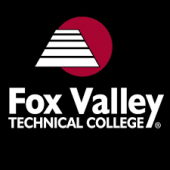
#30: Fox Valley Technical College
Fox Valley Technical College is a member of the Wisconsin Technical College System, which serves 250,000 students each year across fifty locations and more than 500 programs. The nursing program at Fox Valley Tech offers a nursing assistant technical diploma, a practical nursing technical diploma, and three associate degree in nursing pathways (generic, LPN-to-ADN, paramedic-to-ADN). The LPN and ADN programs are accredited by the Accreditation Commission for Education in Nursing. All nursing programs incorporate intensive coursework, hands-on experience in a state-of-the-art health simulation environment, and clinical rotations at area healthcare facilities. Graduates from Fox Valley Technical College are extremely well prepared for their respective licensure and certification exams. For example, the college has posted a 98% first-time NCLEX-PN pass rate and a 97% first-time NCLEX-RN pass rate over the past decade.
